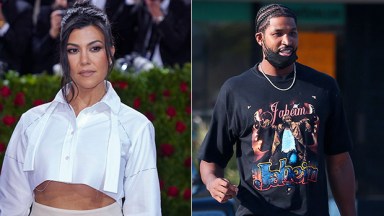“You say I used to be wild, I say I used to be young,” Miley Cyrus sings at the muted, introspective fresh ballad “Used to Be Young.” The timing of the one’s drop is sly: Cyrus gave her notorious, twerk-seen-’round-the-world MTV Video Track Awards efficiency 10 years ago on Friday. Cyrus, now 30, isn’t chiding her more youthful self or expressing regrets right here, although — “I know I used to be crazy, messed up, but God was it fun,” she sings with an audible grin — such a lot as she is announcing her proper to develop and alter. Despite the fact that “Used to Be Young” begins out calm, it step by step builds in depth, culminating in a finale that permits Cyrus to exhibit the overall energy of her grainy drawl. LINDSAY ZOLADZ
Al Inexperienced, ‘Perfect Day’
The magnificently idiosyncratic soul singer Al Inexperienced has re-emerged making a song “Perfect Day,” a track from 1972 via — of all crowd — Lou Reed. Reed’s original had a disquieting undertone, blackmail “You’re going to reap just what you sow.” However Inexperienced’s remake — subsidized via musicians from his Seventies Hello Rhythm Division — trades any misgivings for love, and the similar series turns into a pledge of mutual diversion. JON PARELES
Zach Bryan that includes Kacey Musgraves, ‘I Remember Everything’
This wrenching spotlight from Zach Bryan’s fresh self-titled book is a he-said/she-said account of a failed, whiskey-soaked romance, i’m ready to a forlorn chord development. “A cold shoulder at closing time, you were begging me to stay ’til the sun rose,” Bryan sings in his aching croak, ahead of Kacey Musgraves enters with a pointed query: “You’re drinking everything to ease your mind, but when the hell are you gonna ease mine?” ZOLADZ
L’Mist, ‘Pet Rock’
“Why would you go without me?” L’Rain — the songwriter and musician Taja Cheek — wonders in “Pet Rock,” a stormy track about unwelcome solitude. Cascading guitars and shifty-meter drumbeats give the track an unpredictable, nearly tidal movement that ebbs and flows with all of the lyrics’ unanswered questions. PARELES
Selena Gomez, ‘Single Soon’
“I know he’ll be a mess when I break the news/but I’ll be single soon,” Selena Gomez exults within the ultra-smiley “Single Soon.” It’s a triumphal march about all of the prerogatives of transferring on — “I’m gonna do what I wanna do” — with giggles within the supplementary monitor as she comes to a decision it’s “Time to try another one.” Like Taylor Fast’s “Blank Space,” it celebrates the selections forward. PARELES
Prince, ‘Alice Through the Looking Glass’
The teaser for the later much-expanded Prince reissue — “Diamonds and Pearls,” due Oct. 27 — is a falsetto funk song a few lady with a hidden however alluring profession. “Some call it a curse, some call it sweet salvation/No one can deny the stimulation,” Prince sings over a skulking synth-bass series. The lyrics keep ambiguous, however the groove tells its personal sensual tale. PARELES
Margo Value, ‘Strays’
Margo Price discharged her book “Strays” in January, however its name monitor arrives this presen within the rollout of “Strays II,” a sequel she’s freeing a couple of songs at a era. In “Strays,” she sings about being younger, poor and ferally in love again in January 2003, with a galloping beat and pounding piano chords that implies the E Side road Band visiting Nashville. The reminiscences tone victorious. PARELES
Mon Laferte, ‘Tenochtitlán’
The Chilean songwriter Mon Laferte sings a few lady shamed for her being pregnant in “Tenochtitlán,” evaluating her to the Virgin Mary. In a monitor that melds the unfashionable and futuristic, she overlays a trip-hop bass undertow with lushly dramatic yarns, a flamenco-tinged guitar solo and a passage of pitch-shifted vocals, year she urges, “Beautiful one, cry no more.” PARELES
Luciana Souza & Trio Corrente, ‘Bem Que Te Avisei’
The fresh book from Luciana Souza and Trio Corrente, “Cometa” is a party of Brazil’s vintage songbook, with covers of songs via Dorival Caymmi and Antonio Carlos Jobim along full of life originals written within the spirit of custom. Souza contributes a composition, “Bem Que Te Avisei” (“Well, I Warned You”), an up-tempo samba through which she admonishes a suitor to not chase any person until he’s taken with committing. The piece comes totally alive halfway via, when she sings a verse accompanied via simply Paulo Paulelli’s bass and Edu Ribeiro’s bright percussion, and achieves elevation on the finish, as Souza’s wordless vocals double with the piano of Fabio Torres, in brief bringing to thoughts Vegetation Purim’s synergy with Chick Corea in Go back to Eternally. GIOVANNI RUSSONELLO
Titanic, ‘Anónima’
The Guatemalan songwriter Mabe Fratti and the Venezuelan composer Hector Tosta, who expenses himself as I l. a. Católica, have collaborated as Titanic, with an book due in October. In “Anónima” (“Anonymous”), Fratti’s cello grunts rhythmic double-stops as she sings about power, troubling ideas, surrounded via clusters of piano notes and increasingly more brutal percussion. Her expression maintains its equanimity, however her distorted cello in spite of everything lashes out. PARELES
Abiodun Oyewole, ‘Somebody Else’s Thought’
In 1968, the poet-activists Larry Neal and Amiri Baraka discharged “Black Fire: An Anthology of Afro-American Writing,” a suite that will assistance to outline the Black Arts Movement. The poet with probably the most works featured in its pages was once Solar Ra: Despite the fact that most commonly referred to as the bandleader of the Arkestra, Ra was once a thinker and poet up to he was once a musician. That very same era, a bunch of younger poets got here in combination in Harlem, dubbing themselves the Utmost Poets and helping to lay the groundwork for what would soon become hip-hop; Abiodun Oyewole was once one in every of them. The ones histories collide on “My Words Are Music: A Celebration of Sun Ra’s Poetry,” a fresh book on which diverse artists learn Ra’s poems between spacey synthesizer interludes from Marshall Allen, the Arkestra’s tide chief. On “Somebody Else’s Idea,” Oyewole delivers verses that Ra first recorded in the early 1970s, when the Utmost Poets had been of their high: “Somebody else’s idea of things to come/need not be the only way to vision the future,” he announces. RUSSONELLO







